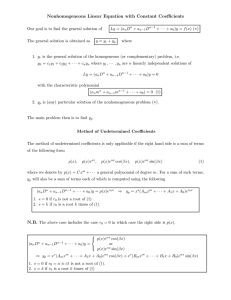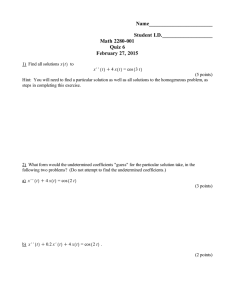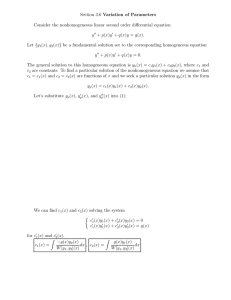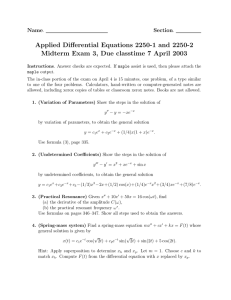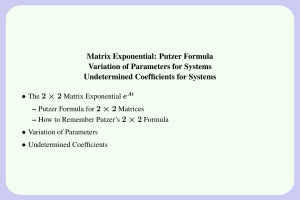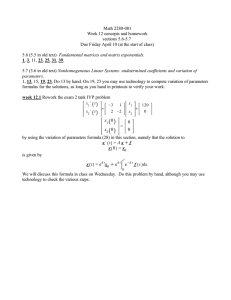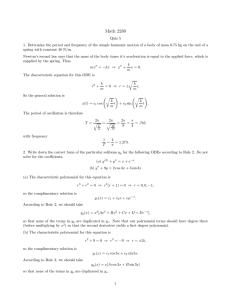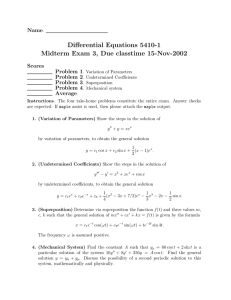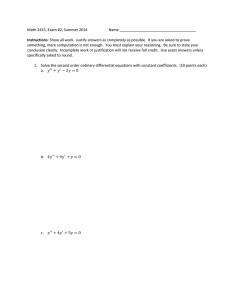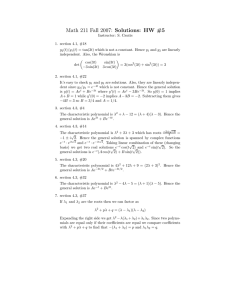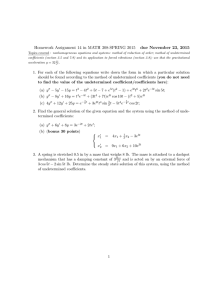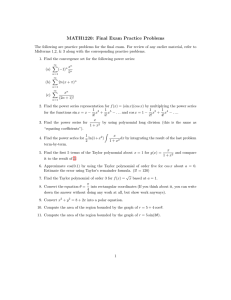Method of Undetermined Coefficients (∗)
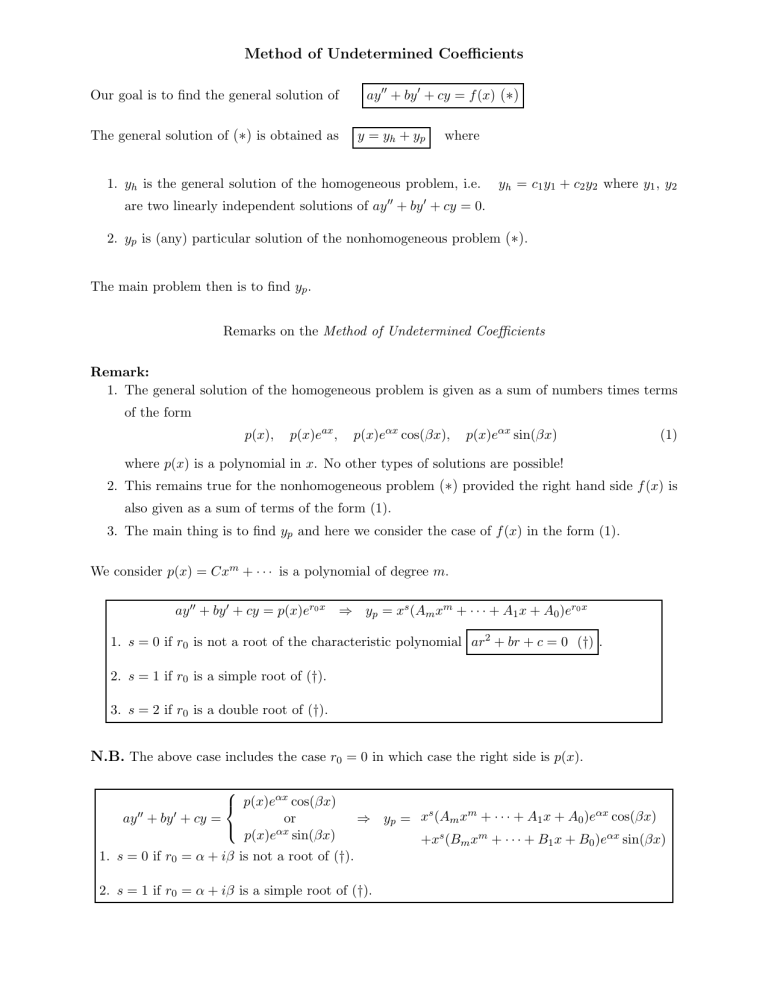
Method of Undetermined Coefficients
Our goal is to find the general solution of ay
00
+ by
0
+ cy = f ( x ) ( ∗ )
The general solution of ( ∗ ) is obtained as y = y h
+ y p where
1.
y h is the general solution of the homogeneous problem, i.e.
y h
= c
1 y
1
+ c
2 y
2 where y
1
, y
2 are two linearly independent solutions of ay
00
+ by
0
+ cy = 0.
2.
y p is (any) particular solution of the nonhomogeneous problem ( ∗ ) .
The main problem then is to find y p
.
Remarks on the Method of Undetermined Coefficients
Remark:
1. The general solution of the homogeneous problem is given as a sum of numbers times terms of the form p ( x ) , p ( x ) e ax
, p ( x ) e
αx cos( βx ) , p ( x ) e
αx sin( βx ) (1) where p ( x ) is a polynomial in x . No other types of solutions are possible!
2. This remains true for the nonhomogeneous problem ( ∗ ) provided the right hand side f ( x ) is also given as a sum of terms of the form (1).
3. The main thing is to find y p and here we consider the case of f ( x ) in the form (1).
We consider p ( x ) = Cx m
+ · · · is a polynomial of degree m .
ay
00
+ by
0
+ cy = p ( x ) e r
0 x ⇒ y p
= x s
( A m x m
+ · · · + A
1 x + A
0
) e r
0 x
1.
s = 0 if r
0 is not a root of the characteristic polynomial ar
2
+ br + c = 0 ( † ) .
2.
s = 1 if r
0 is a simple root of ( † ).
3.
s = 2 if r
0 is a double root of ( † ).
N.B.
The above case includes the case r
0
= 0 in which case the right side is p ( x ).
ay
00
+ by
0
+ cy =
p ( x ) e
αx cos( βx ) p ( x ) e or
αx sin( βx )
1.
s = 0 if r
0
= α + iβ is not a root of ( † ).
⇒ y p
= x s
( A m x m
+ · · · + A
1 x + A
0
) e
αx cos( βx )
+ x s
( B m x m
+ · · · + B
1 x + B
0
) e
αx sin( βx )
2.
s = 1 if r
0
= α + iβ is a simple root of ( † ).
